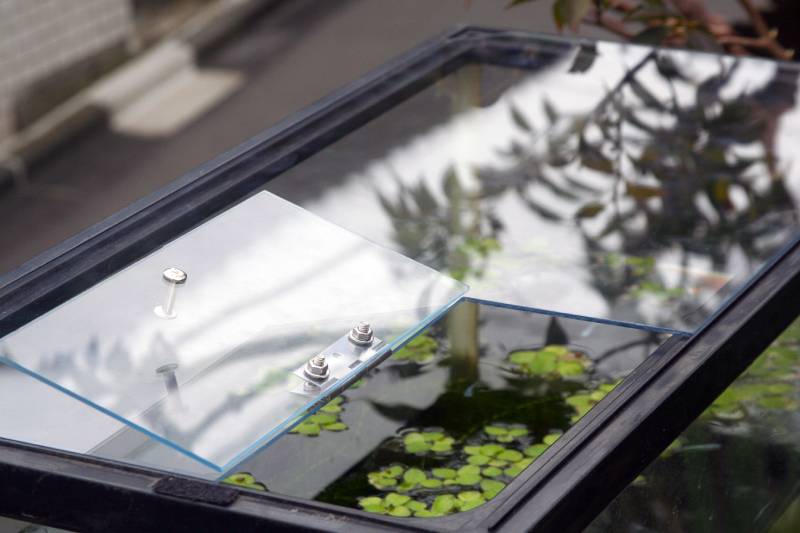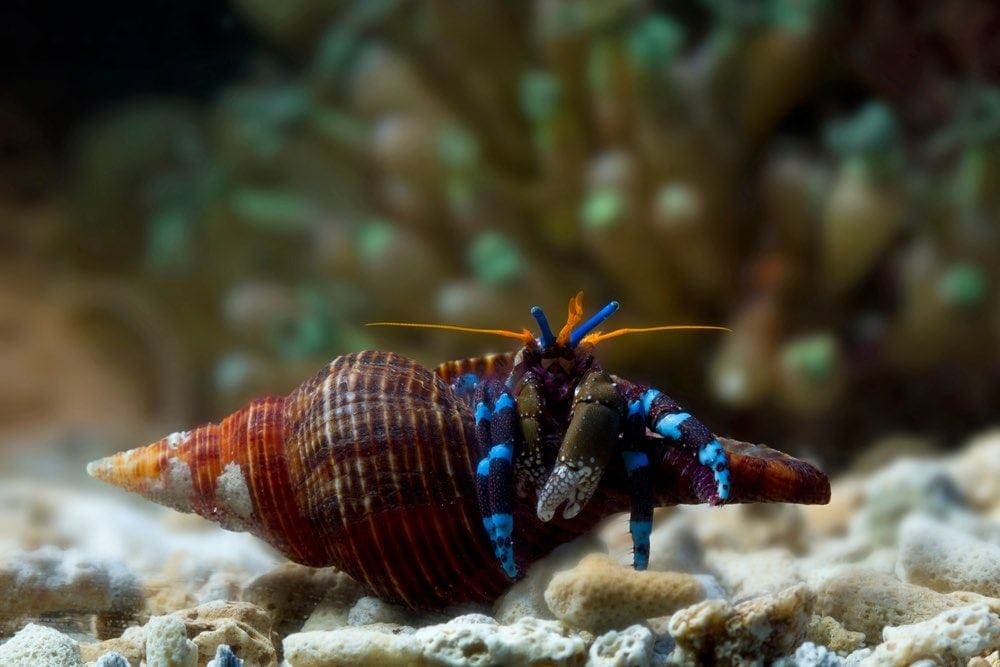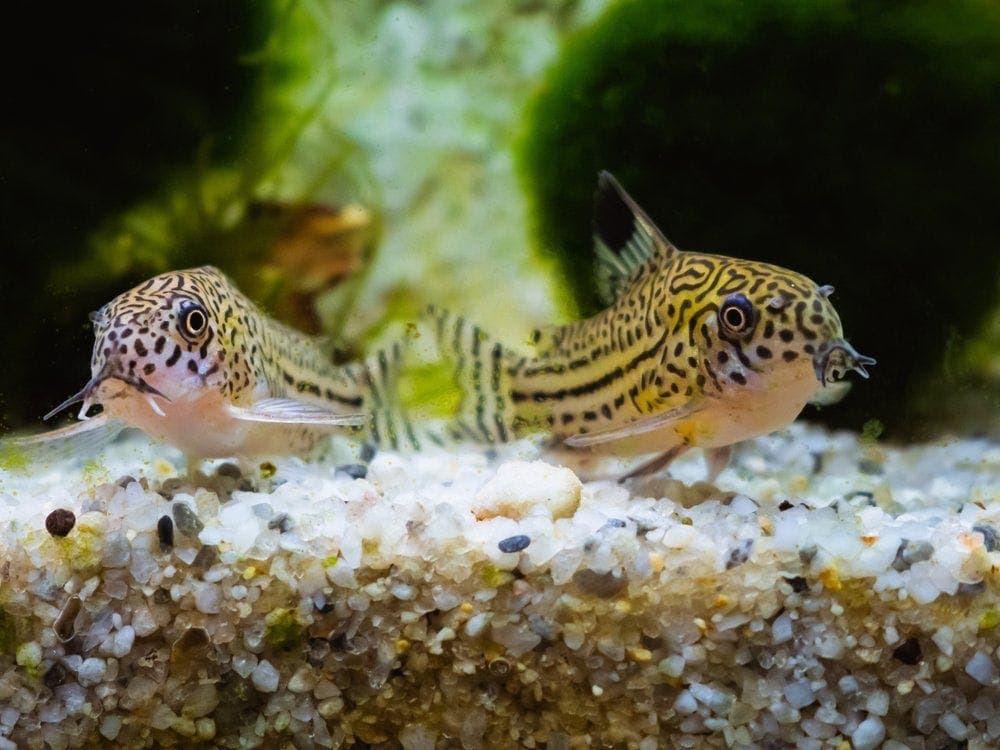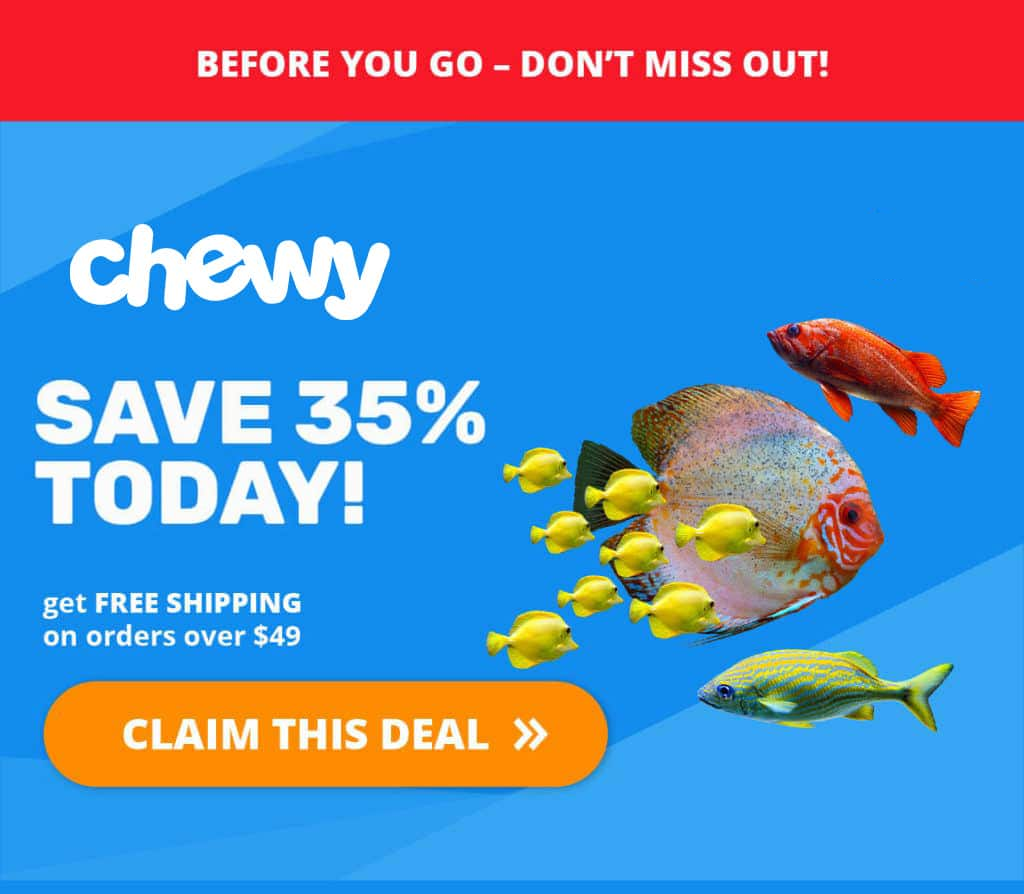What Do Koi Fish Eat? Nutrition Facts & FAQ

Updated on
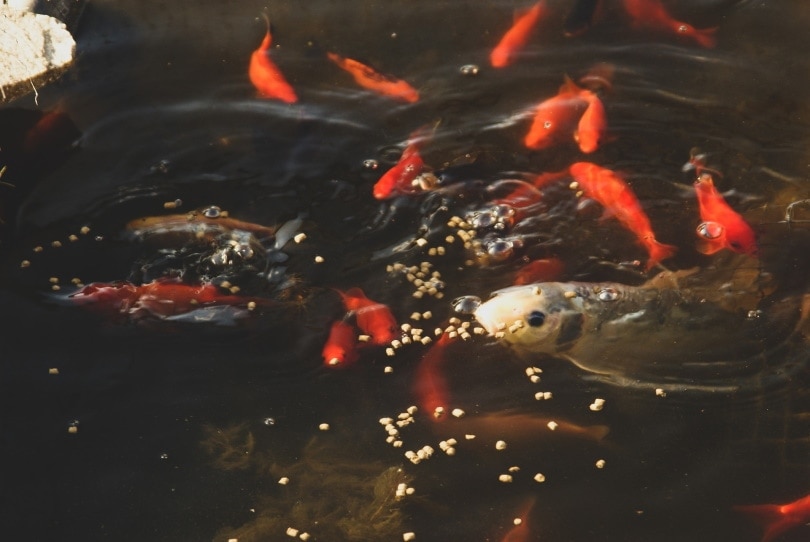
Koi fish are some of the most spectacular cold-water fish in the aquarium hobby. They are colorful and large-growing pond fish and are very well-loved amongst goldfish keepers. These fish are colored varieties of the Amur carp and are primarily kept as decorative fish in both indoor and outdoor ponds.
Many koi fish owners want to bring out the best in their koi’s colors, and this can be done by incorporating certain foods into their diet. Koi that are fed the right kind of diet closely matched to their wild foods, will be healthier and reach their full color and size potential. In the wild, they will typically eat algae, seeds, plant matter, and insects.
If you are interested in finding out more on how to improve your koi fish’s colors and health through feeding, this article is perfect for you!
 Koi Fish
Koi Fish
More specifically known as Nishikigoi, the koi fish is a popular fish of interest in many parts of China, Thailand, and Japan. These fish are significant symbols of luck, prosperity, and happiness in Chinese culture. Not only are these the jewels of the carp world, but they are also a cultural pet that has been bred for centuries in captivity. Since many koi fish sold in the aquarium trade today are from captive-bred backgrounds, their diet is slightly different from what they previously ate in the wild.
Since they have adapted to a different diet in captivity that they have naturally been introduced to through specific breeding and dietary tolerance, it is easy to feed your koi the wrong foods. Feeding your koi an inadequate diet takes a toll on their general well-being. Koi fish should be fed a diet rich in natural foods that they will catch or find in the wild.
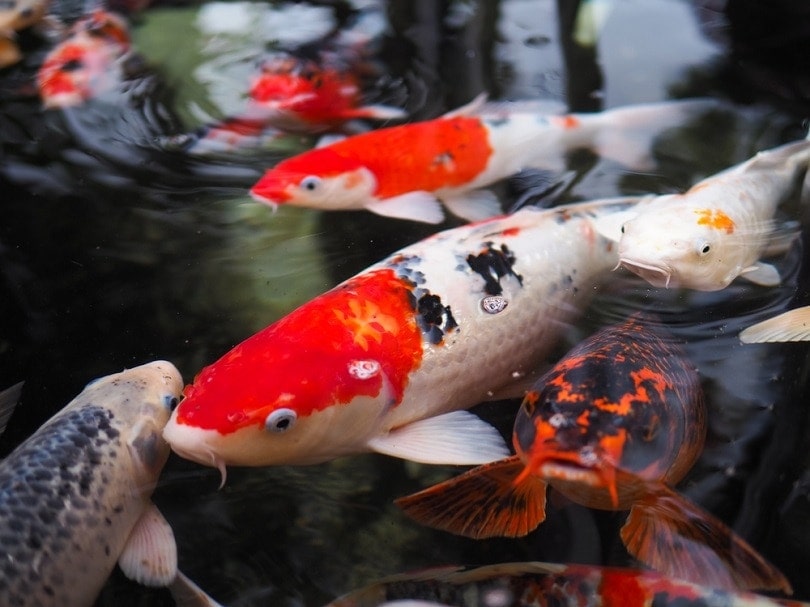
- Improved coloration
- Longevity
- Prevents deformities
- Increases growth
- Encourages breeding
- Stronger immunity
- Improved digestion
- Healthy organs
Not only is a proper diet the right way to go when it comes to feeding, but it also helps aid in proper digestion and nutrient intake. Koi are adapted to retain nutrients from certain foods which makes it crucial to include them in your koi’s diet.
The Koi Fish’s Natural Habitat
Wild koi are native to freshwater found in the Caspian and Aral seas. They have been thoroughly domesticated since the 19th century and introduced into many bodies of water across the world. In captivity, they are best kept in large ponds or water gardens where they have enough space to thrive.
In their wild and captive habitats, koi fish are adapted to living in tannin or algae-colored water with heavy vegetation which includes water lily, hair algae, duckweed, water lettuce, water hyacinth, and Coontail. The plants offer shade and security for the koi fish. Some plants also make up a part of their wild diet. These plants are ideal for koi ponds or water gardens and will help your koi feel more at ease.
Another benefit to creating a pond set-up like their natural habitat is that these plants attract other food sources like insect larvae to reproduce near the plants and they will gladly eat these larvae as a source of protein.
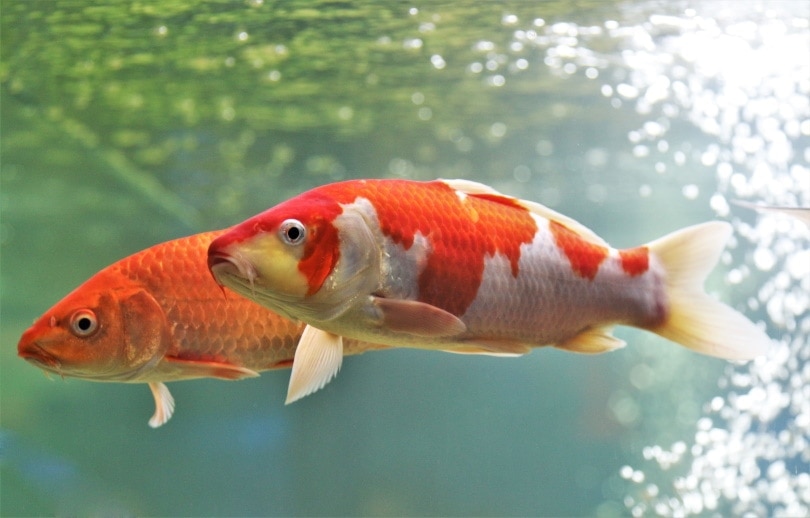
Wild Diet
Koi are both omnivores and opportunistic eaters. They scavenge for food at the bottom of the water to stir up any food sources they can find. They also lap at the surface to eat any floating foods.
- Algae
- Seeds
- Insects
- Larvae
- Micro worms
- Snails
- Plant matter
- Crustaceans
These foods are plentiful and naturally occur in the wild. This provides them with a constant food source, and it is enriching for koi to find their food.
Captive Diet
In captivity, you want to incorporate the majority of their wild food sources into their diet. A common issue with koi fish is that they are typically fed low-quality commercial fish flakes. This is a poor source of nutrition for koi fish and should be avoided.
Koi should be fed a high-quality pellet food formulated for koi, along with daily supplements like daphnia, mosquito larvae, microworm cultures, bloodworms, algae wafers, and plant matter. This will complete their diet and will closely replicate what they would eat in the wild. These foods are optimal for koi fish and will keep them healthy and their color vibrant. They will nibble on various plants in the pond so it is a good idea to add plenty of vegetation that can grow in a pond.
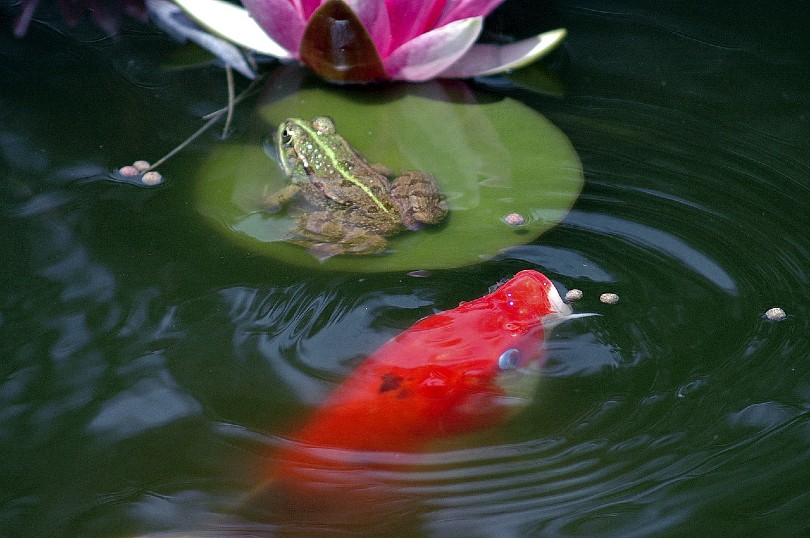
What to Avoid Feeding Koi
The following foods should not be fed to koi fish. Not only are these foods unhealthy, but they offer no nutrition, and your koi fish will struggle to digest them.
- Bread (wheat is undigestible)
- Cereals
- Rice
- Corn
- Sweets
- Spicy foods
- Fruits (high in sugar)
These foods may not immediately reflect in their health but will cause various issues over time. Bloat is a common symptom that they are being fed inadequate food.
How Often Koi Should Be Fed
Koi fish should be fed at a rate of 2% of their body weight per day. This should be maintained by feeding your koi fish at least three times a day. This can mean you will go through quite a few bags of food a month. You should thoroughly plan a budget or bulk up on high-quality food so that you can efficiently plan for the month ahead.
If you have a lot of koi fish, you will need to buy a fed bag a month the ensure each koi fish receives an adequate portion of food. You should feed your koi once in the morning, afternoon, and then in the late evening.
Conclusion
It is optimal that you feed your koi fish a healthy and varied diet. It is important to ensure that your koi are receiving everything they require nutritionally and that they are fed appropriately. If you stick to feeding your koi similar foods that they would find in the wild, you will be rewarded with beautiful koi and rapid growth.
See Also:
Featured Image Credit: Russell De Boer, Pixabay
 Koi Fish
Koi Fish
